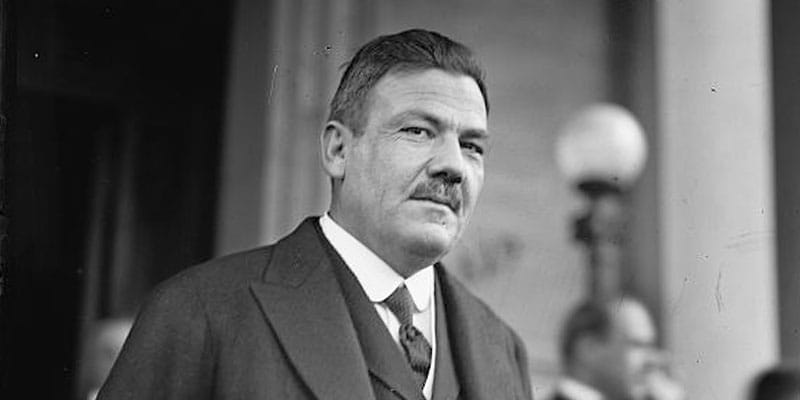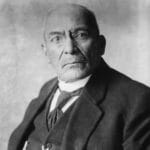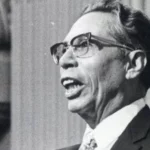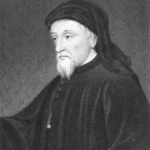In the tapestry of Mexican history, Plutarco Elías Calles stands as a commanding figure shrouded in enigma. With a resolute hand, he steered Mexico through tumultuous times, etching his name in the annals of power. Yet, many secrets lie hidden behind his stern facade. Join us as we shed light on the intriguing life of Calles, unmasking the enigmatic facts and forgotten tales that have shaped his legacy. Prepare yourself for an immersive journey into the shadows, where the man behind the “Jefe Máximo” emerges from the mist.
Enigmatic Facts About Plutarco Elías Calles
Let’s delve into the captivating and often perplexing life of Plutarco Elías Calles, a man who indelibly shaped Mexico’s destiny.
- From Revolution to Power: Calles’s ascent to prominence was no accident. He earned his stripes during the tumultuous Mexican Revolution, where his strategic brilliance and natural leadership qualities propelled him through the ranks.
- The Calles Law and Religious Conflict: A staunch advocate for secularism, Calles implemented the controversial Calles Law in 1926. This law, designed to curtail the Catholic Church’s influence in Mexican society, ignited the Cristero War, a bloody three-year conflict that left a deep scar on the nation’s psyche. Some experts believe this clash with the Church reveals a deeper tension between tradition and modernity that characterized Calles’s rule.
- Shaping a Nation, Forging an Identity: Calles played a crucial role in shaping a cohesive Mexican national identity. He implemented policies designed to promote unity and patriotism, leaving a legacy that continues to influence the country today. However, it’s important to acknowledge that historians still debate the long-term impacts of his methods, particularly his suppression of dissent.
- The Maximato: Power Behind the Throne: Even after his presidency officially ended in 1928, Calles continued to exert considerable influence over Mexican politics during a period known as the “Maximato.” This era, lasting until 1934, saw Calles wielding power from the shadows, consolidating his control, and shaping the political landscape according to his vision. Historians continue to debate the extent and nature of his influence during this time, with some suggesting he was the true power behind the presidency.
- Modernization with an Iron Fist: Calles’s commitment to modernizing Mexico was undeniable. He oversaw significant economic development, promoting industrial growth and infrastructure projects. However, this progress often came at a cost, as Calles displayed a willingness to employ authoritarian tactics to achieve his goals. This duality, the blend of progress and repression, lies at the heart of Calles’s complex legacy.
- A Legacy Shrouded in Ambiguity: Even today, Calles remains a polarizing figure in Mexican history. Some hail him as a visionary leader who dragged Mexico into the modern era, while others condemn him as a ruthless dictator who trampled on civil liberties. This ongoing debate underscores the complexity of his character and the enduring impact of his actions.
- Unraveling the Enigma: Plutarco Elías Calles was a study in contradictions – a revolutionary turned authoritarian, a reformer unafraid to wield power. His legacy is a tapestry woven with threads of progress and repression, leaving historians and citizens alike to grapple with the enigma of his true motivations and the lasting consequences of his tumultuous reign.
What Was Plutarco Elías Calles Known For?
Plutarco Elías Calles wasn’t just another name in the history books; he was a force to be reckoned with. His legacy is a mix of bold reforms, ruthless ambition, and a lasting impact on Mexican society that still sparks debate today.
Here’s a breakdown of what he was known for:
- Revolutionary Leader: Calles cut his teeth in the Mexican Revolution, rising through the ranks to become a general. His military experience shaped his leadership style and his belief in decisive action.
- Champion of Social Change: As president, he implemented policies aimed at empowering everyday Mexicans. Land redistribution, educational reforms, and bolstering workers’ rights were all part of his agenda. He believed in leveling the playing field and giving a voice to those who had long been marginalized.
- Architect of Secular Mexico: Calles was a staunch advocate for separating church and state. His anticlerical policies, including the controversial Calles Law, aimed to reduce the Catholic Church’s influence in Mexican society. These actions, while rooted in a desire to modernize Mexico, led to the bloody Cristero War, a testament to the complexities and passions surrounding religious freedom.
- The Rise of the PRI: Calles’s political legacy extended far beyond his presidency. He was the driving force behind the creation of the Institutional Revolutionary Party (PRI), a political powerhouse that dominated Mexican politics for decades. The PRI, under Calles’s influence, brought stability but was often criticized for suppressing opposition and maintaining power through questionable means.
- Legacy of Controversy: Calles’s rule was marked by both progress and repression. While some praise his commitment to social reform and modernization, others condemn his authoritarian tactics and his role in the Cristero War. His legacy is a complex one that continues to be debated and dissected by historians and citizens alike.
What Happened to Plutarco Elías Calles?
Calles’s life was a whirlwind of political intrigue, marked by both triumphs and downfalls. Even after his presidency, he remained a formidable force in Mexican politics, but his ambition eventually led to his exile.
Here’s a look at the twists and turns of his later years:
- The Maximato: After leaving office, Calles continued to exert considerable influence behind the scenes during a period known as the Maximato (1928-1934). He remained a kingmaker, shaping policy and controlling key political appointments.
- Exile: In a dramatic turn of events, Calles was exiled from Mexico in 1934 by Lázaro Cárdenas, his handpicked successor. Cárdenas, eager to consolidate his own power and pursue a more socialist agenda, viewed Calles’s lingering influence as a threat.
- Return and Death: Calles was eventually allowed to return to Mexico in 1941 after years in exile. He died in 1945, leaving behind a complicated legacy that continues to be debated and analyzed.
Was Plutarco Elías Calles a Mason?
The question of Calles’s Masonic affiliations is a bit of a historical mystery, one that adds another layer of intrigue to his already complex legacy.
While there’s no definitive proof that he was a Freemason, rumors have persisted for decades. Some historians point to his secularist views, his support for public education, and his clashes with the Catholic Church as potential indicators of Masonic influence.
The lack of concrete evidence has only fueled speculation, making it difficult to say for sure whether or not Calles was a member of the secretive fraternity.
How Did Calles Maintain Control Over Mexico?
Plutarco Elías Calles was a master political strategist who employed a combination of tactics to consolidate and maintain his grip on power in Mexico.
Here’s a closer look at his methods:
- The PRI Powerhouse: Calles created the Institutional Revolutionary Party (PRI) as a tool for centralizing power. The PRI became the dominant political force in Mexico, controlling the presidency and other key positions for decades. This one-party system, while providing stability, limited political competition and stifled dissent.
- Master of Patronage: Calles built a vast network of patronage, rewarding loyal followers with government positions and other benefits. This system created a culture of dependency and ensured that those in power owed their allegiance to Calles and the PRI.
- Suppression of Opposition: Calles was notorious for silencing his critics. Opposition leaders were often imprisoned, exiled, or simply disappeared. This created a climate of fear and discouraged any serious challenges to his authority.
- Appealing to the Masses: Calles wasn’t all about backroom deals and strong-arm tactics. He understood the importance of popular support and implemented social programs designed to appeal to the working class and peasantry. Land redistribution, labor reforms, and investments in education helped solidify his image as a champion of the people.
- Military Backing: Calles maintained close ties to the military, recognizing its importance in maintaining order and quelling dissent. The army’s loyalty ensured that he could rely on force if necessary to maintain his grip on power.
Why Was Calles Exiled?
The exile of Plutarco Elías Calles in 1934 by Lázaro Cárdenas, the man he had helped install as president, stands as one of the most dramatic episodes in Mexican history.
Several factors contributed to this stunning turn of events:
- Cárdenas’s Growing Independence: While Cárdenas initially owed his presidency to Calles’s support, he gradually asserted his own authority and began to chart a more independent course. Cárdenas, more radical and left-leaning than his predecessor, sought to implement sweeping social and economic reforms that Calles viewed with suspicion.
- Clashing Visions for Mexico: Cárdenas and Calles clashed over the direction of the Mexican Revolution. Cárdenas championed land reform, workers’ rights, and the nationalization of foreign-owned industries, policies that challenged the interests of some of Calles’s allies and his vision of a more capitalist-oriented economy.
- Political Maneuvering: Cárdenas skillfully outmaneuvered Calles, consolidating his power within the PRI and the military. When Calles realized the extent of Cárdenas’s control, it was too late to resist.
- Exile as a Strategic Move: By exiling Calles, Cárdenas eliminated a powerful rival and sent a clear message that he was in charge. It also allowed him to pursue his reform agenda without interference from his former patron.
What Is the Calles Law in Mexico?
The Calles Law, enacted in 1926 under President Plutarco Elías Calles, was a pivotal piece of legislation that aimed to codify the separation of church and state in Mexico, escalating tensions that had been simmering for decades.
The law’s key provisions included:
- Restriction of Religious Orders: The law placed limits on the number of priests allowed to operate in Mexico and required them to register with the government. This move was seen as a direct attack on the Catholic Church, which had long held significant influence in Mexican society.
- Control of Education: The Calles Law prohibited religious organizations from owning or operating schools, effectively secularizing the education system. This measure was particularly contentious, as the Church saw education as central to its mission.
- Public Displays of Faith: Public displays of religion, such as processions and the wearing of religious garb outside of churches, were restricted. These limitations were intended to confine religious expression to the private sphere.
Consequences of the Calles Law:
The Calles Law ignited fierce resistance from the Catholic Church and its followers, ultimately leading to the outbreak of the Cristero War (1926-1929). This bloody conflict, pitting Catholic rebels against the Mexican government, resulted in widespread violence and social upheaval. The law’s legacy continues to be debated, with some viewing it as a necessary step towards a modern, secular Mexico, while others condemn it as an infringement on religious freedom.
What Did Cárdenas Do as President?
Lázaro Cárdenas’s presidency (1934-1940) marked a turning point in Mexican history, characterized by sweeping social and economic reforms that aimed to fulfill the promises of the Mexican Revolution. Cárdenas’s bold actions left an indelible mark on Mexican society, shaping the country’s political landscape for decades to come.
Here are some of his most significant accomplishments:
- Land Redistribution on an Unprecedented Scale: Cárdenas is best known for his ambitious land reform program. He redistributed millions of acres of land, previously held by large landowners, to impoverished peasants, organizing them into communal farms known as “ejidos.” This move struck at the heart of the old landowning elite and empowered rural communities.
- Nationalization of the Oil Industry: In a move that sent shockwaves throughout the world, Cárdenas nationalized Mexico’s oil industry in 1938, expropriating the assets of foreign oil companies and creating the state-owned oil company, Pemex. This bold action was a powerful assertion of Mexican sovereignty and gave the government control over a vital resource.
- Empowering Labor Unions: Cárdenas was a staunch supporter of organized labor. He strengthened unions, promoted workers’ rights, and enshrined protections for laborers in the Mexican Constitution.
- Investing in Education: Recognizing the importance of education in national development, Cárdenas expanded access to schools, particularly in rural areas. He promoted literacy campaigns and sought to make education more accessible to all Mexicans.
- International Solidarity: Cárdenas demonstrated his commitment to social justice on the world stage by providing refuge to those fleeing fascism during the Spanish Civil War. Mexico welcomed thousands of Spanish refugees, including intellectuals, artists, and political activists, enriching the country’s cultural landscape.
Was Calles a Socialist?
The question of whether Plutarco Elías Calles was truly a socialist is a complex one, subject to ongoing historical debate. While some of his actions, particularly his early reforms, displayed socialist tendencies, his later years and his political maneuvering suggest a more pragmatic approach to ideology.
Arguments for Calles as a Socialist:
- Land Redistribution: Calles’s implementation of land reform, redistributing land from wealthy landowners to peasants, aligned with socialist principles of economic equality and social justice.
- Support for Labor: His support for labor unions and workers’ rights, as well as his efforts to improve working conditions, could be seen as evidence of socialist leanings.
Arguments Against Calles as a Socialist:
- Authoritarian Tendencies: Calles’s increasingly authoritarian rule, his suppression of political opponents, and his reliance on patronage networks contradicted core socialist values of democratic participation and egalitarianism.
- Opposition to Cárdenas: His opposition to the more radical socialist reforms implemented by Lázaro Cárdenas, his handpicked successor, suggests that Calles’s commitment to socialist ideals was limited.
- Pragmatism over Ideology: Some historians argue that Calles was more of a pragmatist than a true ideologue. He was willing to adopt policies that advanced his own power and the interests of the ruling elite, even if they contradicted socialist principles.
What Was the Battle Cry of Los Cristeros?
The Cristero War (1926-1929), a bloody conflict sparked by the Mexican government’s efforts to restrict the Catholic Church’s influence, saw devout Catholics take up arms against the government. These rebels, known as Cristeros, rallied under the powerful battle cry: “¡Viva Cristo Rey!”
This emotionally charged phrase, translating to “Long live Christ the King!,” encapsulated the Cristeros’ unwavering devotion to their faith and their rejection of government intrusion into religious matters. It became more than just a slogan; it was a declaration of defiance, a prayer, and a rallying cry that echoed across the battlefields of Mexico.
Who Was President of Mexico in 1922?
Álvaro Obregón served as President of Mexico from 1920 to 1924. Although not president in 1922, Obregón’s presidency laid the groundwork for Plutarco Elías Calles’s rise to power. Calles served as Obregón’s Secretary of the Interior, a powerful position that allowed him to build a political base and influence policy.
Obregón’s assassination in 1924 paved the way for Calles to assume the presidency, ushering in an era of significant change and upheaval in Mexican history.
For further exploration:
- Dive into the facts about Scott Joplin, a musical genius who brought ragtime to the world.
- Explore the intriguing facts about Wang Chuanfu, the visionary behind BYD, a leading electric vehicle manufacturer.
- Get to know facts about Andrei Arlovski, a legendary mixed martial artist with a remarkable career.
- Squirrel Droppings vs. Rat Droppings: A Visual Guide to Accurate Identification - November 23, 2024
- Striped Raphael Catfish: The Complete Care Guide (Tank Setup, Diet & More) - November 23, 2024
- Decoding the Ticked Tabby Kitten: Unveiling Their Unique Coat & Care - November 23, 2024















